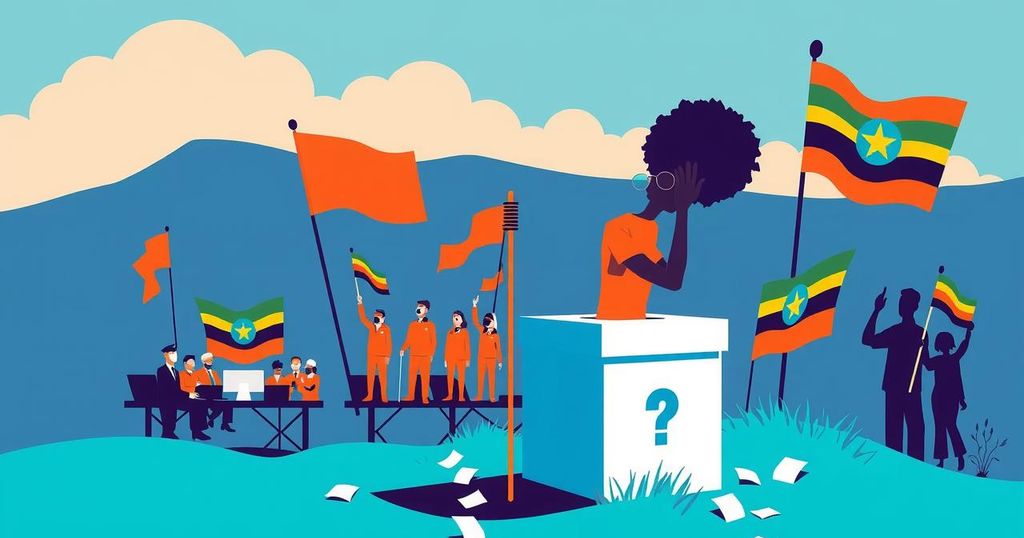Chadema Barred from Elections Following Treason Charges Against Leader

Tanzania’s main opposition party, Chadema, has been banned from the elections after failing to sign a code of conduct and facing treason charges against its leader, Tundu Lissu. This development bolsters the ruling CCM party’s potential to retain power amidst allegations of political repression and the need for electoral reform. Lissu’s ongoing legal struggles signal deep-rooted challenges in Tanzania’s political framework.
Tanzania’s primary opposition party, Chadema, has been prohibited from participating in this year’s elections after its leader, Tundu Lissu, faced treason charges. Ramadhani Kailima, director of elections at the Independent National Elections Commission, announced that Chadema disqualified because it failed to sign a critical code of conduct document by the deadline. Consequently, the ruling CCM party’s prospects of maintaining power seem stronger with Chadema’s exclusion.
Lissu was arrested last week after advocating for electoral reforms during a rally in southern Tanzania. Kailima reaffirmed on Saturday that Chadema’s failure to sign the conduct code will prevent the party from participating in both the general election and any by-elections until 2030. Chadema previously declared it would refrain from the signing ceremony, emphasizing its commitment to electoral reform.
Scheduled for later this year, the parliamentary and presidential elections are pivotal, with Lissu anticipated to challenge incumbent President Samia Suluhu Hassan. Upon her ascendance in 2021, Hassan received commendations for moderating her predecessor’s authoritarian regime, yet campaigners now allege escalating repression against political opponents under her administration.
CCM, the long-standing ruling party since 1977, faces accusations of failing to uphold democratic norms. Lissu has asserted, under the banner “No Reforms, No Election,” that genuine electoral integrity cannot exist without foundational changes in how elections are orchestrated, specifically advocating for a revamping of the electoral commission.
Authorities have accused Lissu of instigating election disruption and inciting rebellion. Following a treason charge hearing postponed until April 24, his lawyer, Rugemeleza Nshala, described the legal actions as politically driven, insisting that they cannot be viewed in isolation from the broader political landscape. Lissu has a history of arrests and survived an assassination attempt in 2017 that saw his vehicle attacked. After living in exile, he returned in 2020 to contest against the late President Magufuli but left due to alleged electoral irregularities. His recent return in 2023 followed promised reforms by Hassan’s government, which purportedly aimed to foster greater political freedom for opposition groups.
The barring of Chadema from Tanzania’s upcoming elections highlights the tension between the ruling CCM party and opposition forces. Tundu Lissu’s treason charges and the failure to comply with the electoral commission’s requirements reflect broader issues of political repression and concerns regarding electoral integrity. As Tanzania approaches critical elections, the actions taken against opposition leaders may significantly impact the democratic landscape of the nation.
Original Source: www.bbc.com







